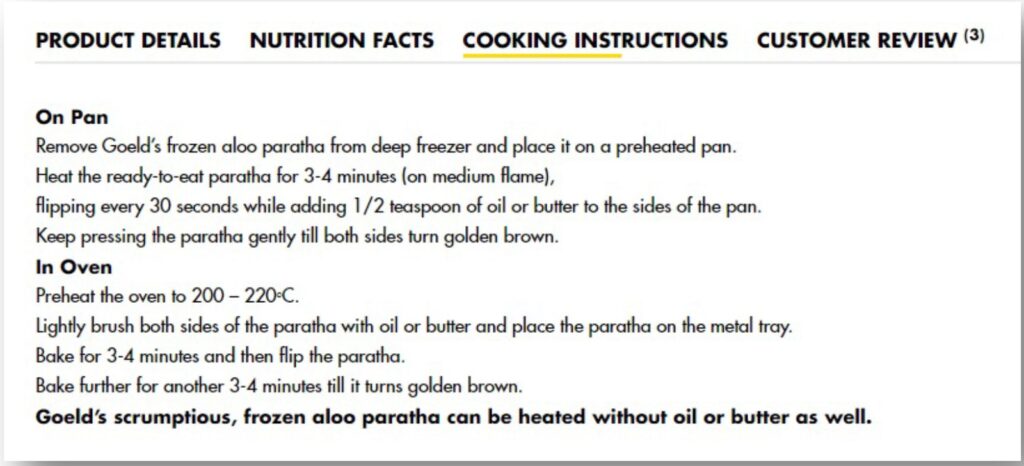
How to effectively handle and store frozen foods?
The benefits of frozen foods continue to be radical even today where products stay longer, and cooking has undergone a revolution because frozen food can be served quickly with no seasonal restrictions. It is not only critical but also essential to ensure that your frozen foods are seldom handled properly i.e. from the point of purchase to storage and defrosting, to keep away the multiplication of harmful bacteria in your kitchen.
Getting a grip on proper frozen food handling practices is crucial in order to maintain optimal freshness. To avoid food contamination, frozen food packages must be treated with care in the kitchen.
Star Rating of the Freezer you use to store frozen food items
The amount of storage time needed for various frozen meals varies depending on the type of food and freezer you have. Look for the freezer’s star rating to determine how long food may be kept safely there. You should check the instructions and star rating for packed frozen food. You can then calculate how long the packaged frozen food can be stored in your freezer using this information.
Additionally, be mindful that a freezer should ideally run around -18°C to maintain its quality.
- Having a star rating of one At -6°C, food will remain fresh in your freezer for a week.
- Food is given a two-star rating and can be kept in your freezer for a month at a temperature of -12°C.
- Your freezer is rated three stars since it can keep food at a temperature of -18°C for three months.
- Having received four stars, because it is set to -18°C, your freezer can hold food for at least three months and possibly longer.
Below are a few tips for storing and handling frozen food proficiently:
1. Make sure the packaging is properly sealed.
Make sure the food packing is firmly sealed before freezing. To prevent freezer burn, make sure the package is tightly sealed when purchasing frozen foods at the grocery store.
2. Before consumption, follow proper defrost instructions.
Any leftovers from a meal prepared with a frozen meal can be re-frozen most of the time but it is important to read the instructions on the package before doing so. Before eating, make sure to properly reheat the food to avoid uncooked food entering your tummy.
3. Perishables need to be quickly frozen.
There are wholesome frozen fruits and vegetables available in the frozen foods market. To maintain the retention of optimal vitamins and other minerals, it is recommended to immediately freeze after harvest. As we are aware that fresh fruits and veggies tend to lose some of their valuable nutrition while in transport.
When they are frozen with the least time wastage, their priceless nutrients are retained keeping the item fresh.
4. As the food defrosts, keep it in its package.
Most people today remove the content in the package while thawing it which can attract food contamination sabotaging the nutritional value of the frozen food item. It is highly advised to keep the food in its original packaging as it thaws to prevent cross-contamination and drying out.
5. Follow the manufacturer’s guidelines.
Read and understand the cooking and handling instructions provided by the manufacturer to guarantee that the frozen food maintains its highest quality.
For instance, the below image of a Goeld frozen foods product – Frozen Aloo Paratha where all the preparation and handling guidelines are mentioned clearly to avoid confusion or miss communication.

6. To facilitate quick thawing, store food in tiny pieces.
Only take out the necessary quantity of frozen food at a time. To make thawing, later on, easier, buy frozen foods in smaller portions that will satisfy your per-serving need. This not only helps you store the items for longer but also locks the nutritional value of the item in an efficient way.
Final words of advice:
Frozen foods, in general, maintain their color and flavor better than foods preserved by other traditional methods, but they are still frozen foods and differ from the fresh product in these characteristics, as well as in texture. Keeping in mind nourishment, freezing not only retains vitamin values better than other conventional preservation procedures because of high temperatures but also allows you to store it for a longer period of time. Hence it is inferred that the nutritive value of minerals, fats, proteins, and carbohydrates is not impaired by the freezing process. For best results, read storage and preparation instructions carefully on the product package.



